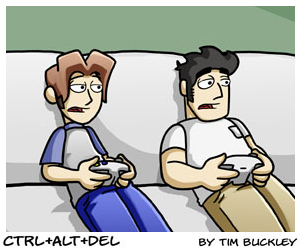
How much screen time are you getting?
Screens are everywhere. And they offer great benefits. Computer games have been proven to help develop problem solving skills, hand-eye coordination and fine motor and spatial skills. The World Wide Web offers opportunities to shop, keep in touch with far-flung friends and find out about almost anything you might want to know. As for films and TV, they’re a great way to switch off, and if you’re studying English, watching a big screen adaptation such as Baz Luhrmann’s Romeo and Juliet or (the 1992 production) Of Mice and Men, starring Gary Sinise and John Malkovich, can help you get to grips with your set text. Indeed, in our modern age, it can almost seem as though everything is designed to be seen and learned on a screen.
However, the result of a new Cambridge University study suggests that, for at least an hour a day, you might be better off picking up a book. The report showed that for GCSE students, an extra hour a day of watching TV, browsing the Internet or playing computer games could negatively affect grades.
Scientists at the university recorded the activities of over 800 14 year olds and then analysed their GCSE results at age 16. Those who had spent an extra hour a day looking at a screen had results that were on average two grades below their peers. Pupils who had spent an extra hour doing homework or reading for pleasure did better.
Most of the young people said they spent an average of four hours a day of their free time using a computer or watching TV. The study also looked at how much of the student’s leisure time was spent being physically active. Although this was not shown to affect grades, it offered other advantages such as physical and mental wellbeing.
Among benefits such as widening horizons and developing empathy, reading for pleasure has been proven to increase confidence, self-esteem and self-awareness, as well as improving memory and levels of concentration. It’s easy to see how this could help your GCSE grades. So, as the great Roald Dahl once wrote:
…please, oh please, we beg, we pray, go throw your TV set away, and in its place you can install, a lovely bookcase on the wall.
(Remember, though, it might be a good idea to warn whoever paid for that television before you resign it to the rubbish bin)
Happy reading!